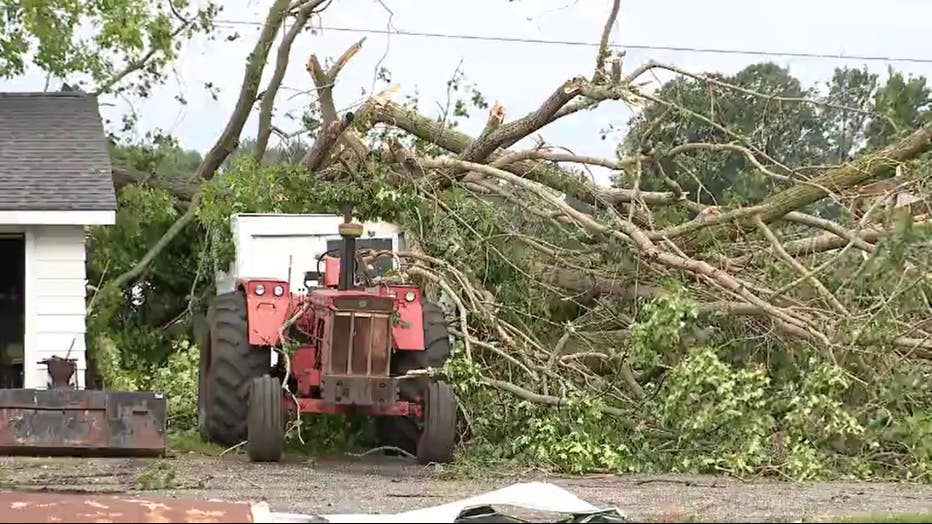Tax Day 2024: Delayed filing allowed for Michigan counties impacted by flooding, severe storms
DETROIT (FOX 2) - Residents of nine Michigan counties impacted by severe weather last summer have a few extra months to file their taxes.
Monday is Tax Day, but residents in Eaton, Ingham, Ionia, Kent, Livingston, Macomb, Monroe, Oakland, and Wayne counties don't have to file their individual or business tax returns until June 17.
These areas were hit by flooding, tornadoes, and severe thunderstorms in August 2023.

Also, individuals and businesses that had an extension to file their 2022 returns will also have until June 17, 2024, to file them. However, tax-year 2022 tax payments are not eligible for this relief because they were originally due last spring, before the disaster occurred.
This extension applies to:
- Individual income tax returns and payments normally due on April 15, 2024.
- 2023 contributions to IRAs and health savings accounts for eligible taxpayers.
- Quarterly estimated income tax payments normally due on Sept. 15, 2023, Jan. 16, 2024, and April 15, 2024.Quarterly payroll and excise tax returns normally due on Oct. 31, 2023, Jan. 31, 2024, and April 30, 2024.
- Calendar-year partnership and S corporations that had a valid tax-year 2022 extension that ran out on Sept. 15, 2023, or have a 2023 return normally due on March 15, 2024.
- Calendar-year corporations and fiduciaries that had a valid tax-year 2022 extension that ran out on Oct. 16, 2023, or have a 2023 return and payment normally due on April 15, 2024.
- Calendar-year tax-exempt organizations that had a valid tax-year 2022 extension that ran out on Nov. 15, 2023, or have a 2023 return normally due on May 15, 2024.
- Quarterly payroll and excise tax returns normally due on Oct. 31, 2023, Jan. 31, 2024, and April 30, 2024.
- Calendar-year partnership and S corporations that had a valid tax-year 2022 extension that ran out on Sept. 15, 2023, or have a 2023 return normally due on March 15, 2024.
- Calendar-year corporations and fiduciaries that had a valid tax-year 2022 extension that ran out on Oct. 16, 2023, or have a 2023 return and payment normally due on April 15, 2024.
- Calendar-year tax-exempt organizations that had a valid tax-year 2022 extension that ran out on Nov. 15, 2023, or have a 2023 return normally due on May 15, 2024.
The IRS is automatically providing federal filing and penalty relief to any taxpayer with an IRS address of record located in the disaster area. These taxpayers do not need to contact the agency to get this relief.
However, taxpayers need to contact the Michigan Department of Treasury to request an extension for state taxes.
This information must be provided:
- Taxpayer's name
- Taxpayer's account number
- The address impacted by and within the federal disaster area -(i.e., the taxpayer’s address or the tax preparer’s address)
- A brief description of how the taxpayer was impacted by the federal disaster
Detroit tax extensions are statutory and automatic and no request or additional information is required. These taxes are administered by the Michigan Department of Treasury. Other city taxes are handled at the local level. Contact your municipality if you have questions about local tax relief.

